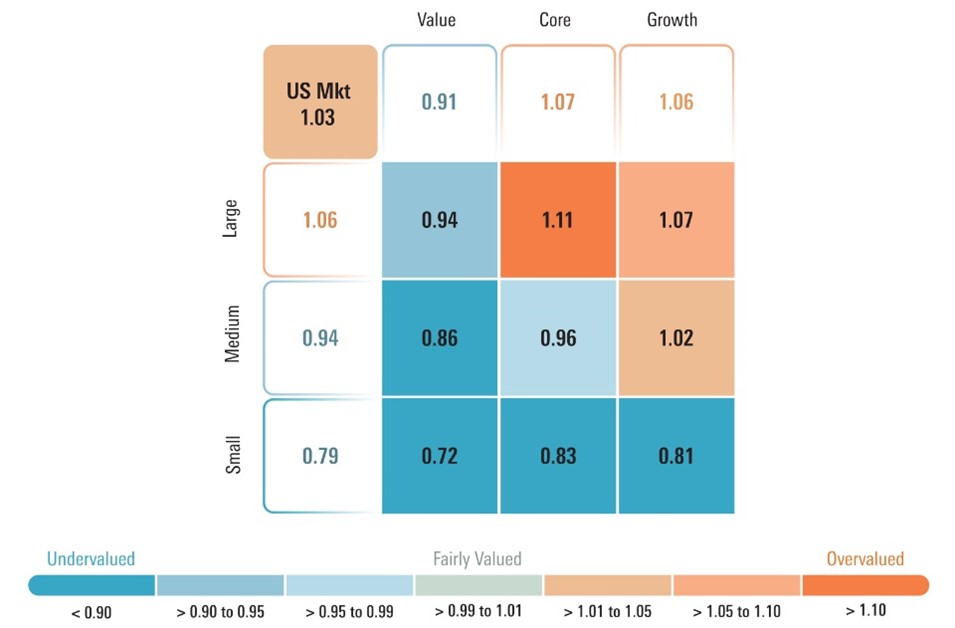Customer support plays an important aspect in deciding on an AI trading platform. A responsive and reliable support team can make a big difference when it comes to resolving problems, optimizing platform usage, or ensuring a smooth trade experience. Here are our top 10 tips on how to evaluate customer support for these platforms.
1. Evaluation of Support Accessibility
24/7 Support: Determine whether the platform provides round-the-clock support. This is crucial particularly when trading on global markets.
Business hours: If 24 hour support is not available, make sure that support is available during trading hours.
Check for holiday coverage.
2. Test Response Times
Initial response: Test the support team by submitting an uncomplicated test question.
Time to solve: Do not simply acknowledge the issue however, you must also establish how long it will take you to fix it.
Live chat Test the effectiveness and responsiveness of live chat if it's accessible.
3. Assess Support Channels
Support via multiple channels: Ensure that the platform offers support through different channels (e.g. email or phone call live chat, email, or social media).
Verify that your preferred support channel is reliable.
Self-service Solutions: To resolve problems quickly, use the extensive Knowledge Base as well as FAQs and Community Forums.
4. Assess the Quality of Support
Expertise: Make sure that support agents have complete knowledge of the platform, trading and technical issues.
Check if the agent is capable of solving complex issues or escalate issues appropriately.
Professionalism: Check if the support interactions are courteous, professional, and helpful.
5. You should look for dedicated account managers
Premium support: Check to see if users of higher-tier plans, or who are institutional users, are able to access a separate account manager.
Account managers should offer individualized support and proactive advice.
Relationship-building: Determine whether the account manager is accessible and if you can establish a relationships with users over time.
Check the supporting documentation
Knowledge base: Ensure that the website has the ability to search and organize a knowledge base, which includes tutorials, guides and troubleshooting tips.
Video tutorials: See if the platform offers webinars or video tutorials for visual learners.
API documentation. API documents are important for developers.
7. Assessing peer and community support
Forums for users: Check whether a platform offers a community or forum for users to discuss their experiences and ideas.
Social media groups Find groups on unofficial social networks (e.g. Reddit. Facebook. LinkedIn), where users are discussing the platform.
Community engagement: Find out whether team members are active participants in discussions or forums within the community.
8. Evaluate Escalation Processes
Issue escalate. Be sure you have a clear procedure for escalating unresolved issues to the management or staff at a higher level.
Follow-up Check to see if Support follows up to confirm that the issue has been resolved.
Feedback loop: Determine if feedback is collected from users to improve the support services.
9. Test Support for critical situations
Market volatility: Contact support during periods of high-volatility and evaluate their receptivity.
Technical issues: Simulate a tech issue (e.g. login issues or discrepancy in data) to test the way support tackles it.
Trade execution: Check whether you are able to get help for urgent issues relating to trading (e.g. failed orders or delays in execution).
10. Review User Feedback on Support
Online reviews: Use platforms like copyright G2 or Reddit to read user reviews and measure general satisfaction.
Testimonials and Case Studies Find testimonials or studies highlighting positive customer experiences.
Check the platform to see how they handle complaints, negative feedback and customer support.
Bonus Tips
Support during the trial period: To evaluate the quality of the system, you can test the support of the platform during the trial period, which is free.
Support for different languages: If you are not an English speaker, check if there is support available.
Onboarding and training. Check whether the platform offers sessions for training or onboarding new users.
With these suggestions to evaluate the support provided by AI platforms for predicting and analyzing stocks Make sure you choose a platform that provides reliable, responsive, and helpful assistance. A platform with a strong customer service will enhance your experience, and help you to get the most of its features. Read the top trading ai for more examples including incite, ai trading tools, AI stock picker, trading ai, ai investing app, ai for investment, AI stock trading app, chatgpt copyright, options ai, chatgpt copyright and more.

Top 10 Tips For Assessing The Regulatory Compliant Of AI stock Forecasting/Analyzing Trading Platforms
When looking at AI trading platforms, compliance with regulatory requirements is crucial. Compliance ensures that the platform is in compliance to financial regulations, and operates within legal frameworks while protecting the user's information. This lowers the possibility of legal or financial concerns. These are the top ten suggestions for assessing the regulatory compliance of these platforms:
1. Verify Registration and Licensing
Regulatory Authorities: Check that the platform is registered with the appropriate regulatory organizations (e.g. SEC US, FCA UK and ASIC Australia) and also has an appropriate license.
Broker partnership: Ensure that brokers integrated with the platform are also properly licensed.
Public Records: Check out the website of your regulatory body for information on the status of your registration or past violations, as well as other pertinent information.
2. Verify Data Privacy Compliance
GDPR - If your website operates within the EU and/or provides services to users in the EU make sure it complies with GDPR.
CCPA : California Consumer Privacy Act (CCPA) compliance should be checked by users.
Policies on handling data: Go through the platform's data privacy policy to make sure it clarifies the methods by which data from users are collected, stored, and shared.
3. Evaluation of Anti-Money Laundering Measures
AML policies: Ensure that your platform is equipped with a solid AML policy to detect and prevent any money laundering.
KYC procedures - Verify that the platform follows Know Your Customer procedures for authenticating user identities.
Review the platform's transaction monitoring. Does it monitor transactions and report suspicious activity to authorities?
4. Verify that you are in compliance with Trading Regulations
Market manipulation: Make sure the platform has safeguards to prevent market manipulation, for example, spoofing or washing trading.
Types of orders: Verify that the platform is in compliance with the regulations applicable to different types of orders (e.g. no stop-loss that is illegal to hunt).
Best execution: Examine to determine if the platform adheres best execution practice, which ensures that trades are executed at the cheapest price.
5. Cybersecurity Assessment
Data encryption: Make sure the platform uses encryption to protect user data in transit and at rest.
Incident response: Verify if the platform has a clearly defined incident response strategy for data breaches or cyberattacks.
Certifications: Determine if a platform is accredited to be secure (e.g. ISO 27001, SOC 2)
6. Transparency as well as Disclosure and Evaluation
Fee disclosure: Make sure the website discloses all fees, including any hidden or additional fees.
Risk disclosure: Verify if the platform offers explicit risk disclosures, particularly when it comes to high-risk trading or leveraged strategies.
Performance reporting: Find out if the AI platform's models are clear and properly reported.
7. Verify that you are in the compliance of international regulations
Cross-border trading: If your trading involves international trade it is important to ensure that the platform meets the requirements of each regulatory region.
Tax reporting: Determine whether a platform offers tools or reports for users to follow tax regulations.
Compliance with sanctions: Ensure that the platform adheres to international sanctions and doesn't allow trading with prohibited organizations or nations.
8. Review the record-keeping process and audit trails
Transaction records: Ensure that the platform records detailed details of every transaction for the purposes of auditing and regulation.
Logs of user activity: Check whether the platform records users' activities, including logins, trades, and changes to the account settings.
Audit-readiness: Determine whether the platform will be equipped to provide all necessary documentation and logs needed for a possible regulatory audit.
9. Evaluation of Compliance AI Specific Regulations
Algorithmic trading regulations: If you are using a platform which supports algorithmic trading, ensure it is in compliance with relevant regulatory frameworks, such as MiFID II or Reg SCI which are in Europe and in the U.S.
Bias & Fairness: Check to see if there are any biases the AI platform is able to control and minimize within the AI model. This will ensure fair and ethical trade.
Explainability. Certain regulations may need the platform to describe AI-driven predictions and decisions.
Review the User's Feedback and Regulatory Histories
User reviews: Study reviews from users to assess the reputation of the platform's regulatory conformity.
The history of regulatory compliance - determine if the website has been convicted of any previous legal violations or fines.
Third-party Audits: Make sure that the platform is subject to third-party inspections to make sure it is conforming to all laws and regulations.
Bonus Tips:
Legal consultation: Contact an expert in the field to determine if your platform is in compliance with laws.
Trial period: Make use of a free demo or trial period to evaluate the features of the platform that are compliant.
Customer support: Ensure the platform offers assistance for compliance-related questions or issues.
Following these tips can help you evaluate the regulatory compliance for AI stock-Predicting/Analyzing trading platform. You'll be able to pick a system that is in compliance with legal frameworks while protecting your interests. Compliance with the law reduces risk to the public and builds confidence on the platform. Read the top rated source for AI stock investing for more examples including AI stock predictions, ai investment tools, best ai trading platform, trading ai tool, free ai tool for stock market india, ai tools for trading, chart analysis ai, AI stock trader, trading ai tool, best ai penny stocks and more.
